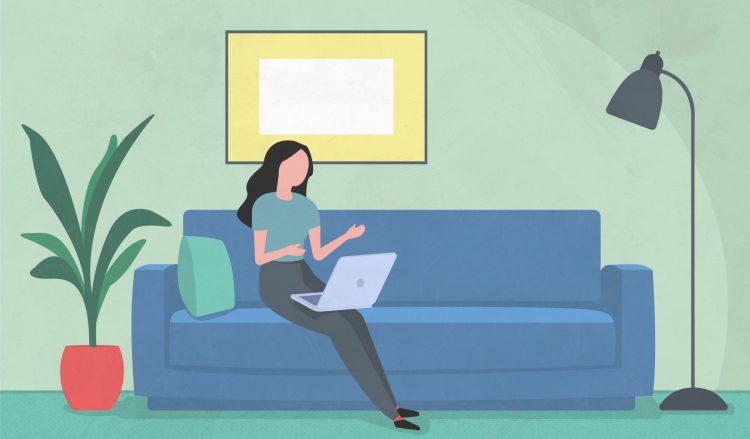The manner in which individuals obtain mental health care has witnessed an extraordinary transformation in recent years. The emergence of therapy online has provided opportunities for a vast number of people who may have otherwise encountered difficulty in obtaining support. Therapy online has evolved into a treatment that is both accessible and flexible, and that is seamlessly integrated into the demands of contemporary life as a result of technological advancements and shifting attitudes towards mental health.
The convenience of therapy online is one of its main advantages. Travelling to an office, taking time off work, or rearranging personal commitments are frequently necessary for traditional therapy. Numerous individuals may be discouraged from obtaining assistance due to these obstacles. In contrast, therapy online can be accessed from the convenience of one’s home, eliminating the need for travel and enabling sessions to be scheduled around work, study, or caregiving responsibilities. For busy professionals, carers, and people who reside in remote or rural areas, therapy online is a desirable option due to its convenience.
Additionally, online therapy assists in the dismantling of barriers associated with accessibility. In certain regions, it may be difficult to locate a local therapist who specialises in a specific issue. Connecting with qualified professionals from across the country or even globally is made possible by online platforms, ensuring that individuals can locate someone who satisfies their specific requirements. This expanded selection enables individuals to access therapy that may be unavailable in their local area, such as clinicians who specialise in niche areas such as trauma, LGBTQ+ issues, or anxiety disorders, or who speak their preferred language. This leads to the fact that therapy online provides a level of personalisation and inclusivity that may be difficult to achieve in traditional, location-based services.
Confidentiality and privacy are additional important factors that contribute to the appeal of therapy online. Particularly in small communities where privacy may be challenging to preserve, the prospect of visiting a therapist’s office may be intimidating for certain individuals. Enrolling in therapy online can facilitate the disclosure of profoundly personal issues by offering a sense of anonymity and comfort. Whether through secure video interactions, live chats, or phone sessions, therapy online provides a secure environment in which the client maintains control of their environment and confidentiality is safeguarded.
Therapy online also has the benefit of being adaptable and flexible. Numerous online therapy services provide a variety of formats, including text-based communication, voice conversations, and live video sessions. This enables clients to select the method that is most suitable for them. Some individuals find it simpler to communicate their thoughts through written communication, while others prefer the in-person interaction of video calls. Individuals feel at ease and supported throughout the process thanks to the ability to customise the experience, which improves the efficacy of therapy online.
One more significant advantage of therapy online is its accessibility. The expenses associated with office space, travel, and time can make traditional therapy quite costly. These expenses are frequently reduced by online platforms, which increases the accessibility of mental health support to individuals who may not be able to afford traditional sessions. Furthermore, certain therapists provide online session alternatives that are either shorter or more flexible, enabling individuals to more effectively manage their finances without compromising the quality of their care. Therapy online democratises mental health support and makes it accessible to a larger audience by lowering financial barriers.
Therapy online can be particularly helpful for people who struggle with anxiety or mobility. For individuals with specific conditions, attending in-person sessions can occasionally be physically challenging or overpowering. The ability to access therapy from home alleviates these stressors and establishes a more tranquil atmosphere, which can be particularly beneficial when discussing sensitive subjects. Deeper and more productive sessions are frequently the result of the inherent comfort that comes with being in one’s own space, which fosters greater honesty and transparency.
Online therapy is also essential for ensuring the continuity of care. Traditional therapy relationships can be disrupted by life changes, such as the relocation to a new city or country, changes in work schedules, or unanticipated travel. By conducting therapy online, it is simpler to preserve continuity, as sessions can be conducted regardless of one’s geographic location. This stability is especially beneficial in preserving the therapeutic relationship and assuring consistent progress, which are frequently essential for achieving long-term results.
Self-reflection is another significant advantage of therapy online. Numerous online platforms promote the utilisation of messaging or journaling between sessions, providing clients with the opportunity to document their thoughts, emotions, and experiences in real time. This type of continuous introspection can improve the therapeutic process by enabling individuals to monitor their progress and recognise patterns in their thoughts and behaviours. Online therapy frequently incorporates these digital tools in a manner that is not present in traditional therapy, thereby establishing a more interactive and continuous path to self-improvement.
The concept of therapy online has also been normalised as a result of the global transition towards digital communication. In particular, younger generations are already at ease participating in significant discussions via digital platforms. Consequently, the stigma that was previously associated with seeking therapy is progressively eroding. Similar to online banking, shopping, or education, people now see therapy online as a natural extension of their daily communication routines. This perception of normalisation contributes to the increased confidence of individuals in taking the initial step towards mental wellness.
In addition, therapy online provides distinctive benefits for particular demographics, including expatriates, pupils studying abroad, and individuals residing in regions with inadequate mental health services. Accessing therapy in their preferred language or within their cultural context can be difficult for these individuals. Therapy online bridges this gap by connecting clients with therapists who comprehend their personal challenges and cultural background, thereby guaranteeing that care is both pertinent and sensitive.
The effectiveness of therapy online is also being supported by a developing body of research. Research has demonstrated that online therapy can be equally effective as in-person sessions for a variety of conditions, including anxiety, depression, and post-traumatic stress disorder. For instance, cognitive behavioural therapy (CBT) has been effectively adapted for online use, resulting in quantifiable improvements in symptoms. The evidence indicates that the character of the therapeutic relationship and the client’s engagement in the process are the most important factors, rather than the medium through which therapy is delivered. The same substance and impact as traditional methods are provided by therapy conducted online by qualified professionals.
The manner in which therapy online fosters autonomy and self-discipline is another noteworthy aspect. Clients frequently assume a more active role in the management of their therapy journeys due to their increased autonomy regarding their scheduling and environment. This feeling of ownership can result in a higher level of personal commitment and motivation to implement coping strategies outside of structured sessions. Individuals develop resilience and autonomy in managing their mental health as a result of the accessibility and adaptability of psychotherapy online.
The calibre of therapy online is continuing to improve as technology continues to develop. High-definition video, encrypted messaging, and advanced tools for goal monitoring and progress measurement are now available on secure platforms. The overall therapeutic experience is not only improved by these innovations, but therapy online is also rendered more engaging. Clients have the ability to review session notes, access helpful resources, and even incorporate mindfulness or meditation tools directly into their online therapy environment. These developments illustrate how technology can enhance human interaction, rather than supplant it.
The global ramifications of therapy online should also be considered. Online access serves as a critical link in regions where mental health care is either stigmatised or inadequately funded. Individuals who would have been unable to access mental health support in the past can now establish connections with qualified professionals. This democratisation of therapy has the potential to enhance public health outcomes on a broader scale, thereby fostering a more mentally resilient and compassionate global community.
Finally, the practice of therapy online signifies a significant transformation in the manner in which society addresses mental health care. It is a viable and frequently preferred alternative to traditional face-to-face sessions due to its affordability, flexibility, and accessibility. Therapy online offers a convenient and private setting to start that voyage, whether you are seeking assistance with anxiety, depression, relationship issues, or simply seeking to better understand yourself. The advantages of therapy online are likely to increase as the digital landscape continues to expand, enabling individuals worldwide to manage their emotional well-being in a manner that is consistent with their lifestyles.











